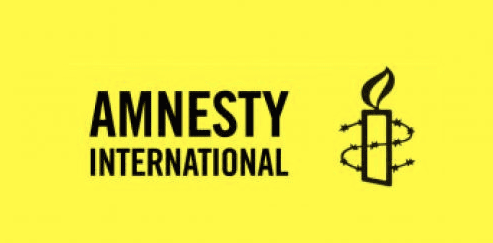The on-going uncertainty around Brexit poses serious human rights issues, Amnesty International said today.
While Amnesty does not take a position on the Referendum result or whether the UK leaves the EU with or without a deal, the human rights organization has pinpointed serious human rights issues.
These include a potential shortage of access to food and medicine, as well as concerns over the future of EU citizens in the UK, the right to immigration and asylum, and the future of the Good Friday Agreement in Northern Ireland.
Kate Allen, Amnesty International UK Director, said:
“The reassurances from the Government to date have simply not been good enough. Deal or no deal, Brexit poses serious human rights concerns to UK residents.
“The Government and politicians of all parties must do everything they can to ensure that the human rights of those living in the UK are protected and respected, not degraded or undermined.
“We’re calling on the leaders of all parties to make a statement to this effect, making clear what they’ll do to ensure our concerns are met.”
Amnesty has outlined five areas the UK Government must ensure happen as they approach the deadline for leaving the EU:
Northern Ireland – As a co-signatory to the Good Friday Agreement, the Westminster Government must ensure that it fully safeguards the vital human rights protections which it helps guarantee. This must include protection of the equal rights of all citizens, whether they identify as Irish or British. It is imperative that there are no restrictions on the freedom of movement to and from Northern Ireland so as to enable people to fully exercise their rights to education, healthcare, work and family life.
EU citizens in the UK – The Government must act to ensure that the rights of EU citizens and their family members in the UK are protected and respected, and take steps to secure the same for one-million plus UK citizens currently living in the EU. In doing so, the Government must ensure that children of EU citizens are not deprived of their rights by being treated as subject to immigration powers (under the Government’s EU Settlement Scheme) in circumstances where those children are, or have rights to register as, British citizens.
Access to food – It is vital that as the UK leaves the EU, the Government does all it can to ensure that food supplies aren’t disrupted and that everybody has access to adequate and affordable levels of food regardless of their circumstances. We are already witnessing an increasing reliance on food banks in the UK, and all efforts must be made to provide food security to all, including those in an already vulnerable situation.
Access to medicine – There must be no disruption to supplies of medicines which are crucial to ensuring that everybody enjoys their right to health. The Government must therefore take all necessary measures to overcome any obstacles to guarantee access to good quality and affordable medicine, and in a timely fashion.
Immigration and asylum system – As the Government seeks to revise the immigration system in the wake of ending EU free movement, it must ensure that any reforms promote and respect the rights to asylum, family and private life and the best interests of children whilst protecting people against wrongful and excessive use of immigration powers by the state and exploitation by third parties.
